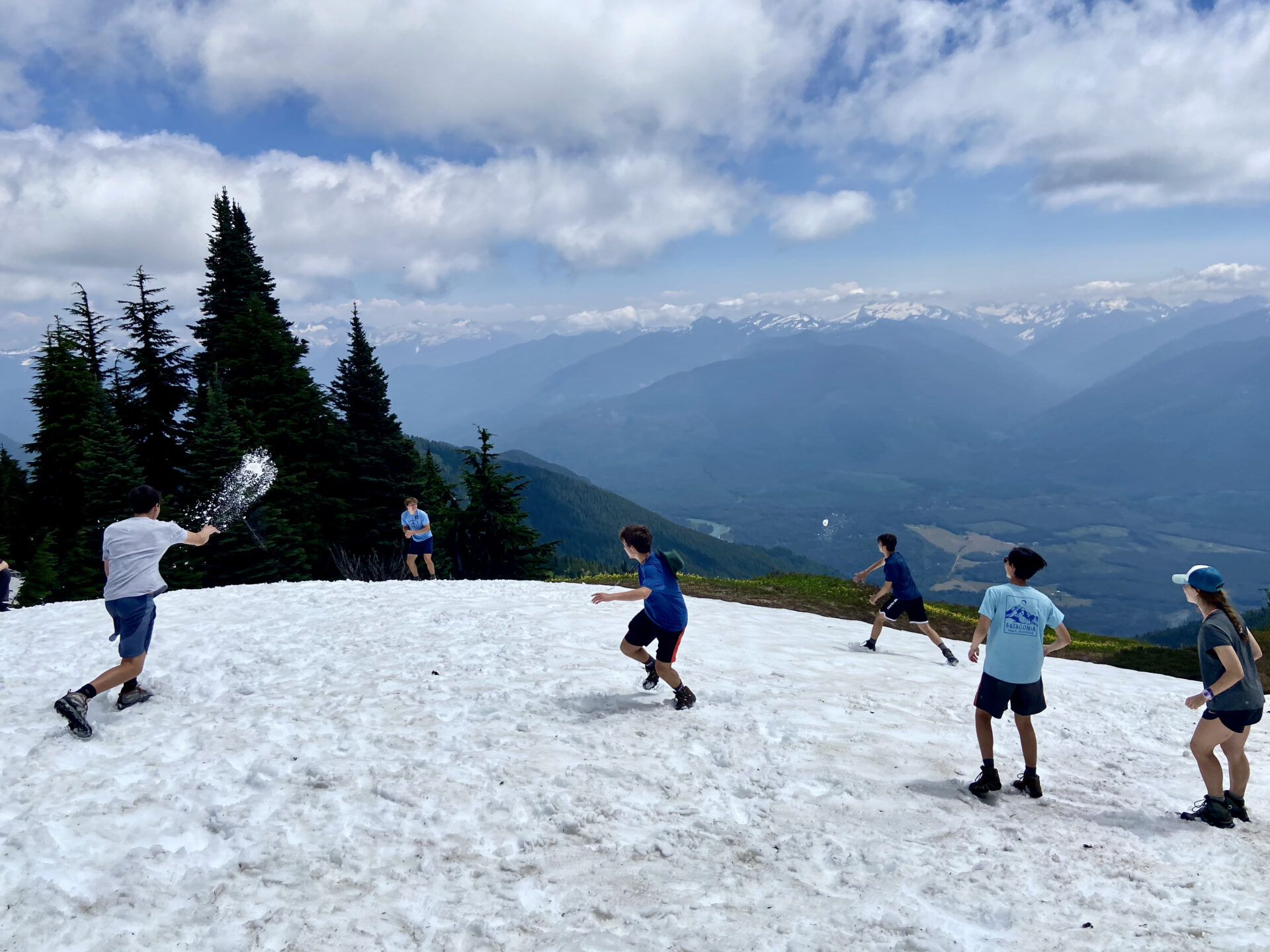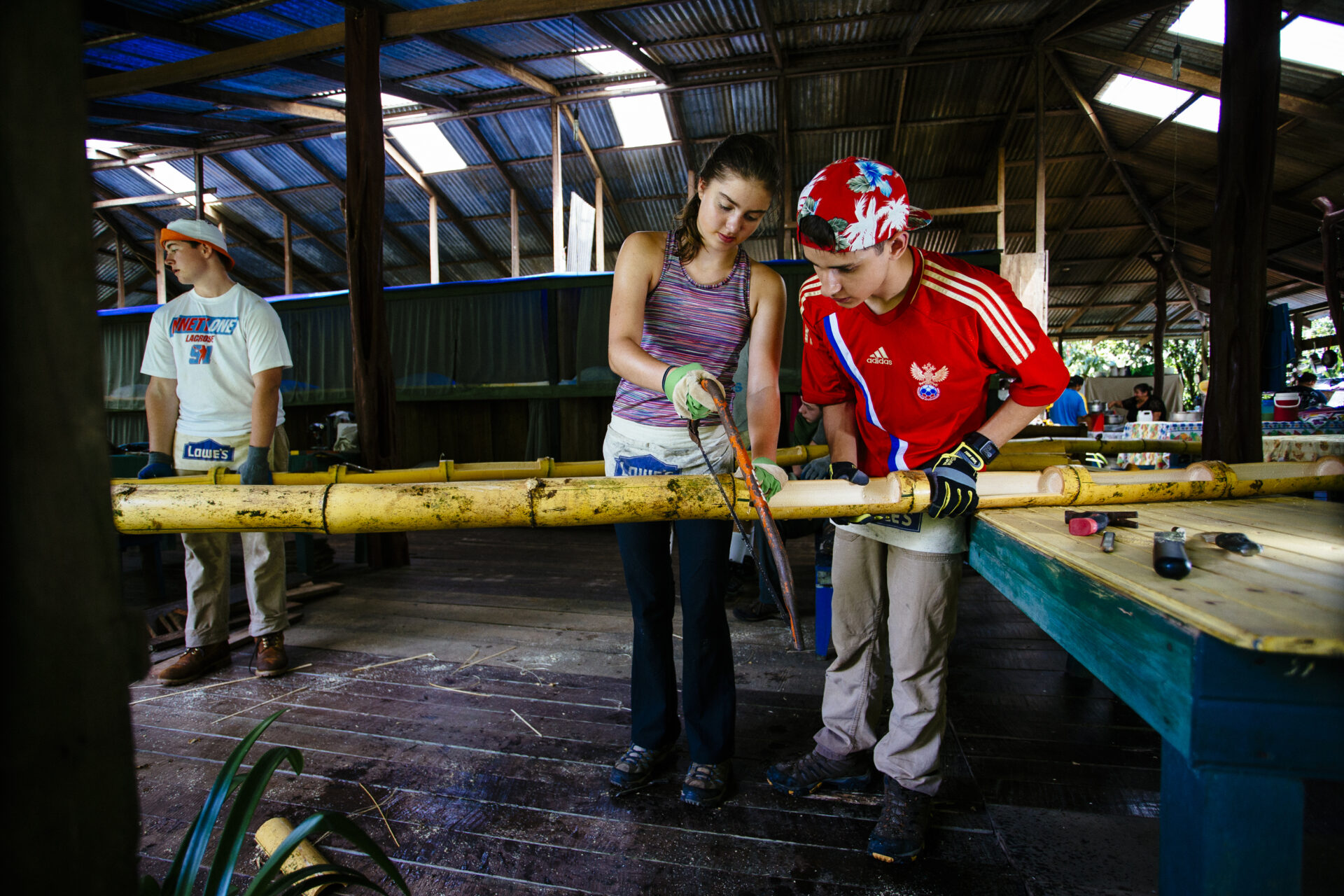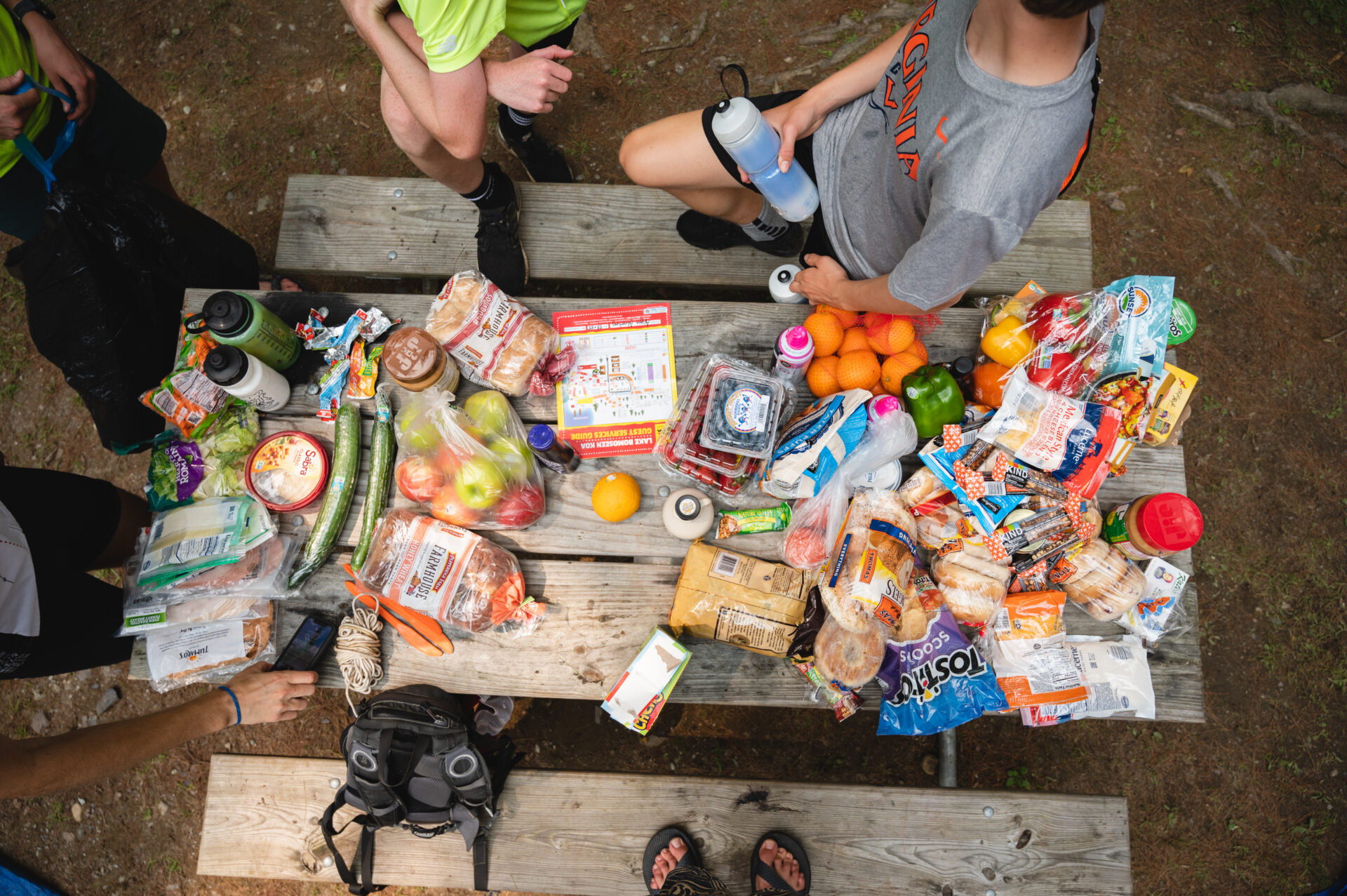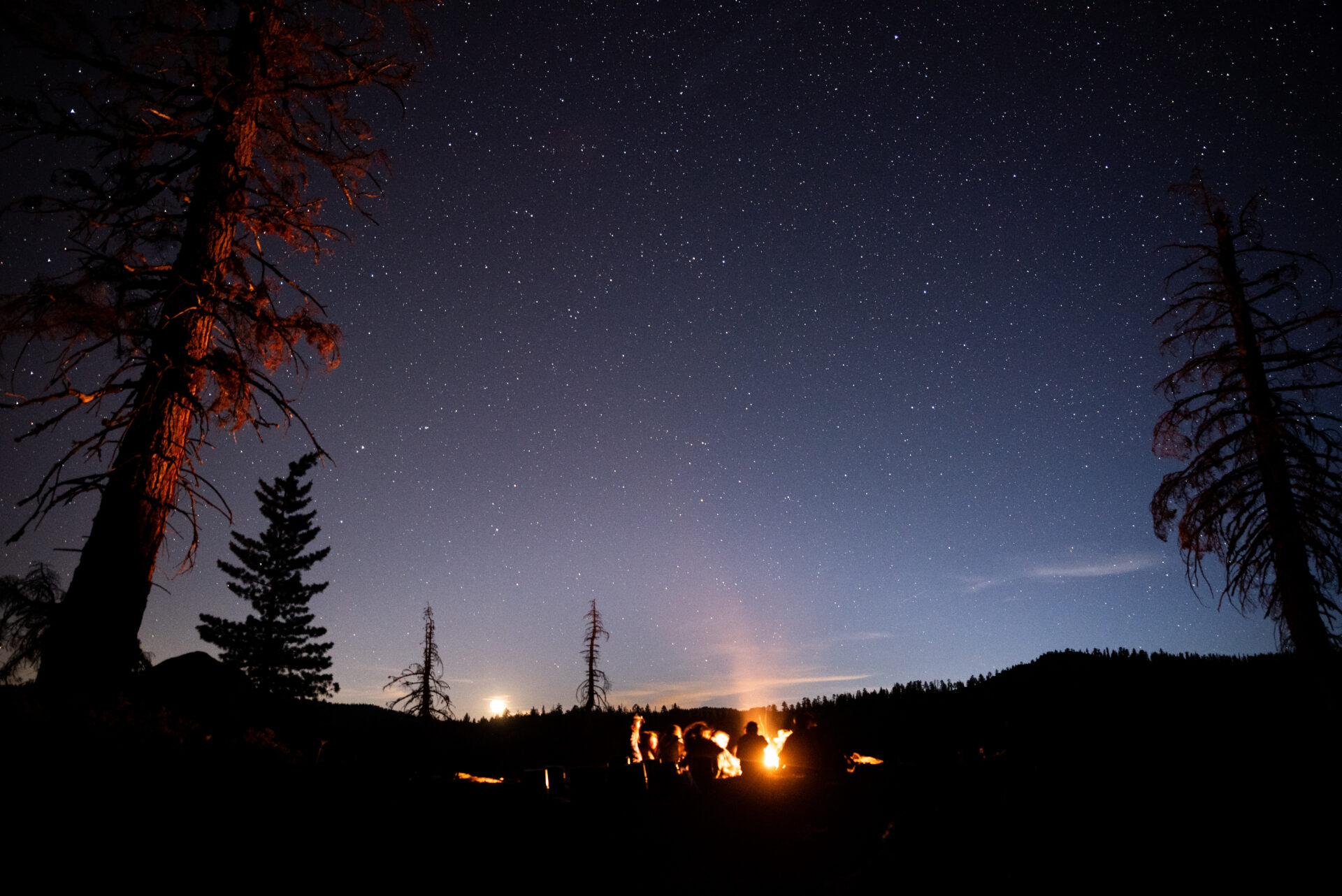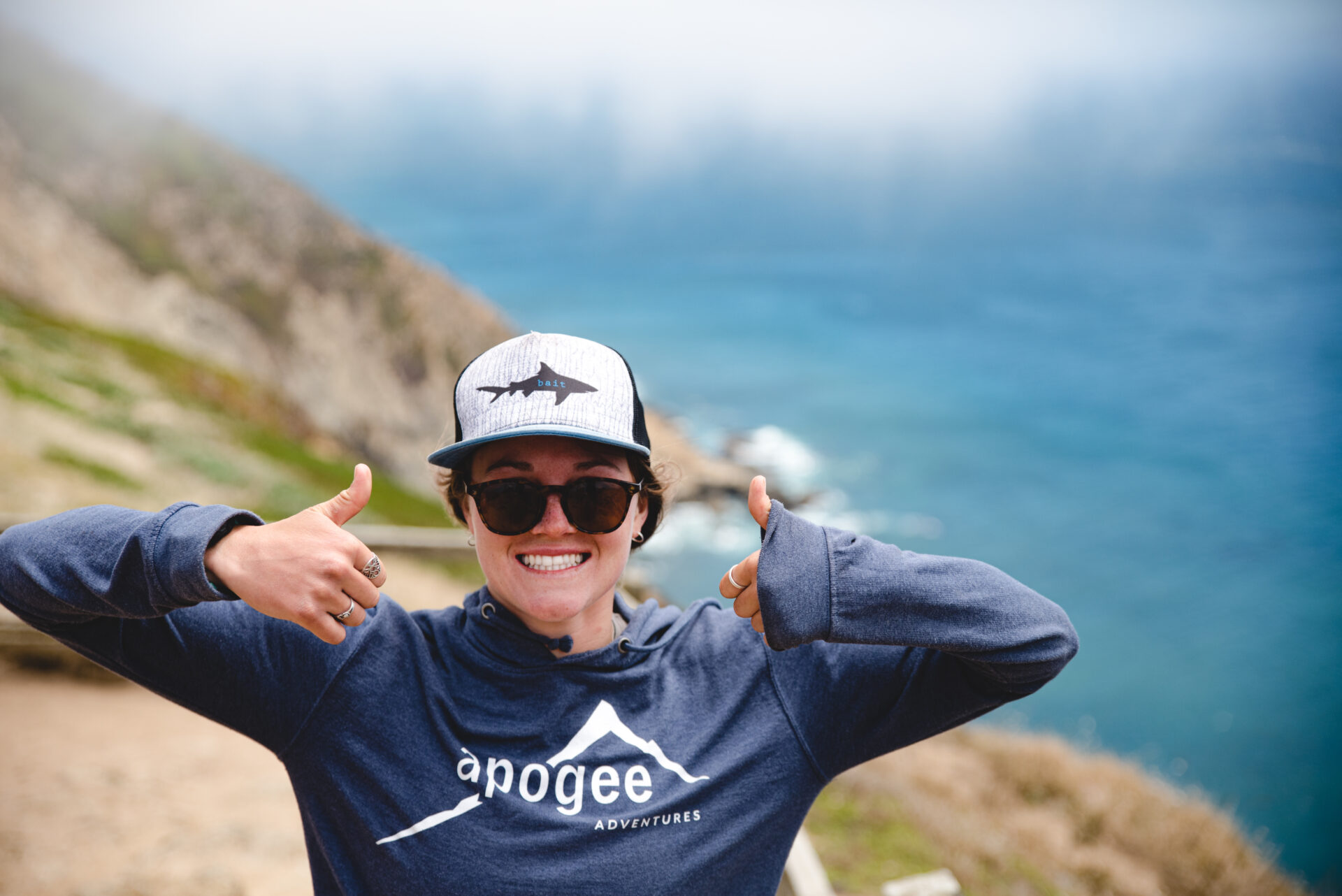You may have heard us say that Apogee trips are, first and foremost, community building experiences – and that the great outdoors simply provide the setting where our trips foster new friendships and confidence building. And while this is absolutely true, well, maybe we downplay the importance of the outdoors with that sentiment.
The outdoors are quite a bit more than just the setting for our trips. Indeed, an integral part of every Apogee experience is our interaction with, and exploration of, the natural world. Having opportunities such as the experience of mountaintop sunrises, bright bioluminescence in tropical bays, roaring whitewater rapids, bugling elk in western forests, and a snowball fight in July are all huge parts of what makes each Apogee trip so unique and so memorable.
So it should come as no surprise that we feel passionately about preserving these special environments so that Apogee students and their families can enjoy the beauty of the natural world for generations to come. As an organization that facilitates outdoor experiences for hundreds of students each summer, we recognize the responsibility we have to be good environmental stewards and to foster a sense of connection to the environment in each of our students. And we’re excited to share a bit more about how we do just that.
First of all, what exactly do we mean by “environmental stewardship”? There’s a Harvard paper on the subject that we think summarizes it pretty well, defining the term to mean, “the responsible use and protection of the natural environment through conservation and sustainable practices to enhance ecosystem resilience and human well-being” (Chapin et al, 2011).
When we think about protecting the natural world, one of the first things that comes to mind is our commitment to community service projects. We intentionally incorporate meaningful service projects into each of our domestic programs (and many of our international trips, too). Here are a just few examples of the amazing organizations we partner with and projects our groups help with:
- During multi-day kayaking expeditions on our Maine’s Downeast Explorer trip, we partner with the Maine Island Trails Association (MITA) to remove marine debris from islands in Isle au Haut Bay.
- In California, our California Mountains & Coast groups work with the Half Moon Bay State Beach rangers on coastal invasive species removal projects.
- Deep in the Costa Rican rainforest, we’ve helped build sustainable, aquaponic gardening systems at the small, family-run eco lodge where our groups stay on our Costa Rica Mountains & Coast trip.
- Our Vermont to Montreal trips volunteer with the Burlington Parks & Rec department to help clean up the Island Line Trail (that our groups use extensively as we ride towards the Canadian border!).
- Several of our New England trips will work on a variety of service projects in and around Apogee’s hometown of Brunswick, Maine – including gleaning food to donate with Growing to Give, lending a hand at the Harpswell Community Garden, and trail restoration projects with the Brunswick-Topsham Land Trust.
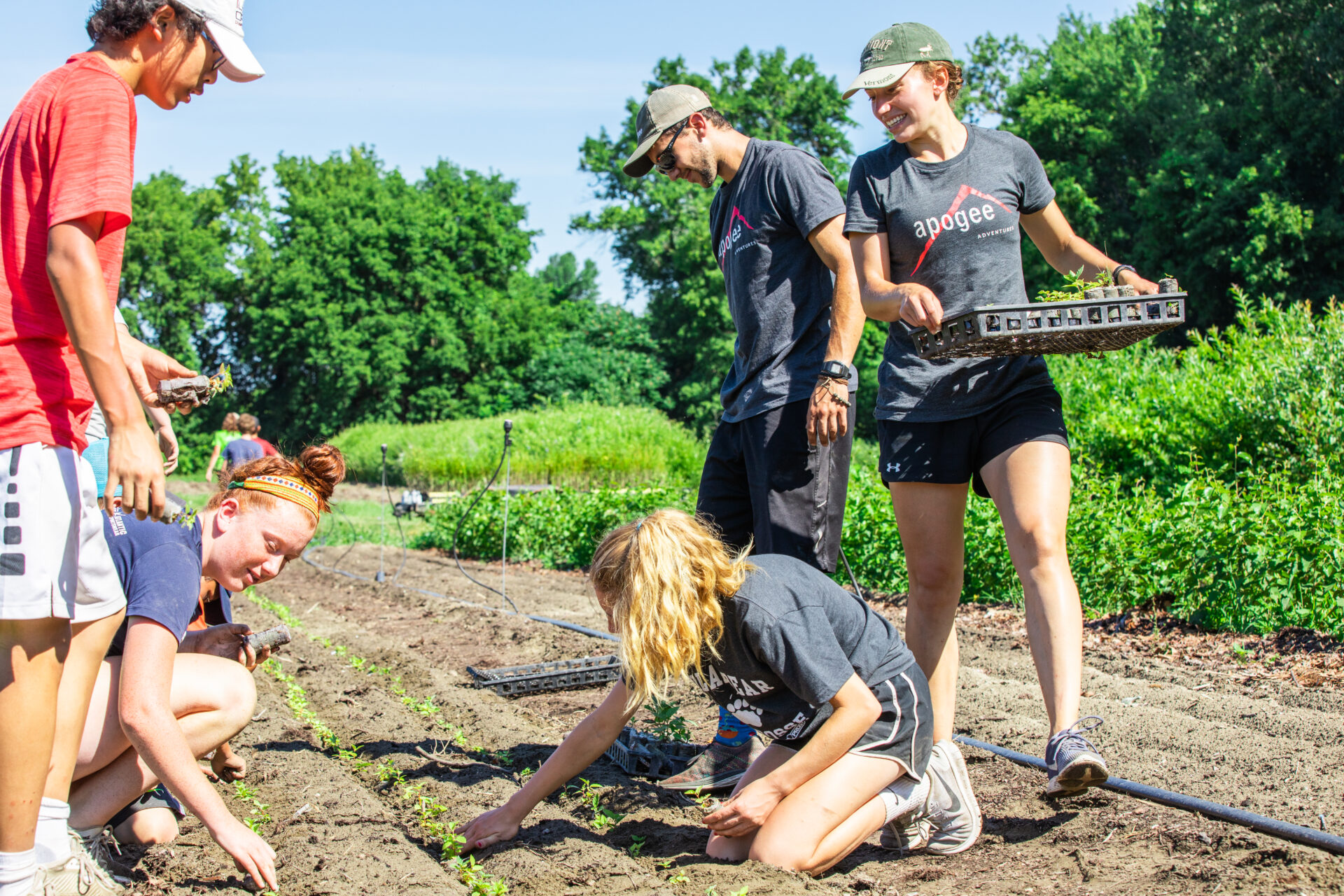
When we’re not actively working on service projects to help restore the natural world, it’s important to consider our sustainability practices, both during our busy summer season as well as our off-season. Here are a few examples of how we’re trying to reduce our carbon footprint:
- Gear: Between the tents, stoves, pots and pans, bikes, and about 300 other pieces of outdoor gear, we require a lot of equipment to run our programs. While our top priority is to send high quality gear into the field with our students, that doesn’t mean we have to toss a tent at the first sign of wear. We meticulously clean and repair our equipment to maximize the lifespan of each item, and when, inevitably, a piece of gear is no longer up to our standards, we either properly dispose of it (recycling as much as possible) or donate the usable equipment to a local outdoor organization that can still put it to good use.
- Fuel: Proper disposal of empty fuel cans is no walk in the park – we have to “bleed” each one (empty of all remnants of propane), safely punch holes in the side, and recycle at the appropriate facilities.
- Minimizing food waste: During our Leader Training, our full team of 60 or so staff eats a lot. Our cooks produce delicious meals that each serve as a great example of something that could be cooked on an Apogee trip, and as a general rule of thumb, we always have leftovers. During Training and on every Apogee trip, we always make sure there’s plenty of food to go around, and when we have access to proper food storage (i.e. refrigeration) on trip, we love getting creative with leftovers. During Leader Training, we can compost all of our food waste. And at the end of the summer, we donate any unopened, non-perishable food that comes back from the field to our local food bank.
Just as important as the steps that we are taking to conserve the environment is our focus on increasing awareness of these issues and fostering a deeper appreciation for and understanding of the natural world – which is exactly why we feel it’s so important to understand the history of these lands that we’re exploring, too. Learning and acknowledging the histories of the people that stewarded the land before us allows us to have a more well-rounded understanding of these places that mean and give so much to us, both on an Apogee trip and beyond.
Finally, one of the most important components of environmental stewardship that we practice everyday on every Apogee trip is called Leave No Trace (LNT) (a topic so exciting that it warrants its own blog post!). The seven Leave No Trace principles provide us with a framework to explore the great outdoors in a sustainable way, and they’ll apply in countless situations:
- Plan Ahead & Prepare: The importance of planning ahead in order to practice LNT principles and reduce risk;
- Travel & Camp on Durable Surfaces: Why we should hike through the puddle on the Appalachian trail instead of hiking around it (and trampling the fragile vegetation), and choosing the best place to set up our tents in the Alaskan backcountry;
- Dispose of Waste Properly: How “Pack it in, pack it out” applies to just about everything we bring in to the outdoors;
- Leave What You Find: As much as we might want to take a shell from a beach in Puerto Rico or carve our initials into a tree for a photo in Maine, why something seemingly so small is still so important;
- Minimize Campfire Impacts: Why campfire protocol (which might mean not having one during a Colorado draught) is so important – from building to extinguishing;
- Respect Wildlife: Why we shouldn’t feed the chipmunks in Yosemite (and, for a similar reason, why it’s so important that we practice proper bear safety protocols when it comes to food storage!);
- Be Considerate of Others: Recognizing that our big group can mean big noise – so ensuring that we’re respecting other visitors of these places.
Like many aspects of Apogee trips, these LNT principles extend far beyond just the few weeks that a trip is in the field. By fostering a connection with the environment, we hope our students are inspired to continue these sustainable practices and share them with their friends and family back home. Increasing community awareness of these simple, yet practical steps can have a huge, positive impact for all of us!
